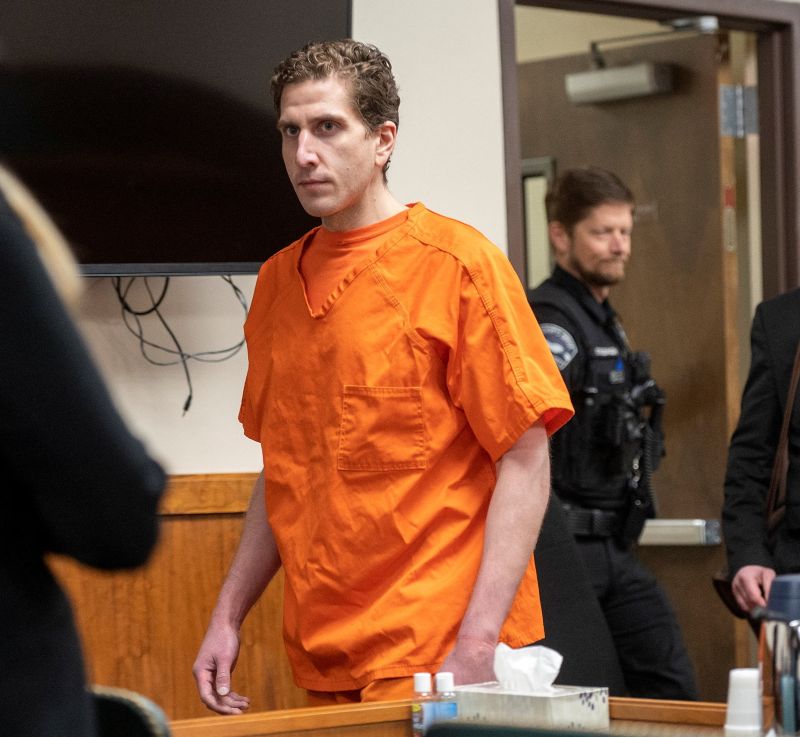Families Devastated as Bryan Kohberger Plea Deal Eliminates Death Penalty Option
The family of Kaylee Goncalves, one of the four University of Idaho students brutally murdered in 2022, was thrust into an emotional whirlwind after learning that accused killer Bryan Kohberger had accepted a plea deal, removing the possibility of the death penalty. The decision, which came with little warning, left Kaylee’s family "scrambling" and in what they described as panic mode, shocked by the unexpected turn in a case they had been following with patience, hope, and heavy hearts.
Kohberger, now 30, is charged with the grisly stabbing deaths of Kaylee Goncalves, Madison Mogen, both 21, Xana Kernodle, 20, and Ethan Chapin, 20. The attack took place in the early hours of November 13, 2022, in an off-campus home in Moscow, Idaho. The brutal crime scene and sudden loss devastated the tight-knit university community and drew national attention, with Kohberger’s arrest weeks later bringing some hope to the victims' families that justice was on the horizon.
Kaylee’s younger sister, Aubrie Goncalves, just 18, has become one of the most vocal family members since the killings. In the aftermath of the plea announcement, she made it clear that her family strongly supports the death penalty, believing it to be the only fitting punishment for the magnitude of violence that ended four young lives. Unable to attend a critical meeting with prosecutors in person, Aubrie nonetheless made her feelings known through heartfelt public statements, vowing not to stay silent.
She expressed frustration and sorrow over the justice system’s delays and complications—especially the relocation of proceedings—which have, in her view, created additional burdens for families already overwhelmed by grief. “We’ve believed in the process. We’ve had faith in the system. But at this point, it is impossible not to acknowledge the truth: the system has failed these four innocent victims and their families,” she wrote in a post shared through the family’s social media.
Aubrie made a powerful plea for the world to remember the victims not as a statistic or headline, but as vibrant, deeply loved individuals. Ethan, Kaylee, Madison, and Xana were more than “The Idaho Four.” They were friends, children, siblings—each with hopes and futures that were cut tragically short. She emphasized that while justice would not bring them back, it would honor their memory in a way that feels meaningful.
The timing of Kohberger’s plea deal, which was accepted just weeks before the scheduled trial, made the shock even more profound for the families. Aubrie called it “both shocking and cruel,” noting that a decision delivered earlier might have allowed time for reflection and processing. Instead, it felt rushed and disorienting. “Bryan Kohberger facing life in prison means he still gets to speak, form relationships, and engage with the world,” she said. “Meanwhile, our loved ones have been silenced forever.”
She further criticized the justice system for retraumatizing grieving families by repeatedly leaving them feeling unheard and unsupported. “Time and time again, we find ourselves blindsided,” she wrote, calling the plea deal “less like an act of justice and more like an afterthought.” The Goncalves family, like others, emphasized they are not seeking revenge—but rather accountability, dignity, and a justice system that truly lives up to its name.
Adding to their frustration, the family said they had only a vague indication from prosecutors last Friday that a plea was even a possibility. The bulk of their conversation, they said, was focused on the upcoming trial. So when they received an email late Sunday night confirming the plea deal, it felt like the floor had dropped out from beneath them. In a state of urgency, they began reaching out to legal teams and officials, hoping to reverse the momentum.
By Monday, the Goncalves family had once again met with prosecutors to reaffirm their position: they wanted Kohberger to face the death penalty. But their pleas, they said, were in vain. “Unfortunately, all of our efforts did not matter,” they wrote. “We DID OUR BEST! We fought harder than anyone could EVER imagine.”
The murders themselves were among the most disturbing in recent memory. Each victim had been stabbed multiple times with what prosecutors described as a large knife. Investigators discovered a Ka-Bar sheath near Madison Mogen’s body, with DNA evidence linking it to Kohberger. This detail became a key piece of the prosecution’s case and reinforced for many the belief in his guilt.
As the legal process moves forward without a trial or possibility of execution, the families are left with a bitter sense of incompletion. They continue to grieve, but also to speak out—not just for their loved ones, but for a justice system they feel must do better. Their message is clear: this is not the justice they were promised, and their fight is far from over.

COMMENTS (0)
Sign in to join the conversation
LOGIN TO COMMENT